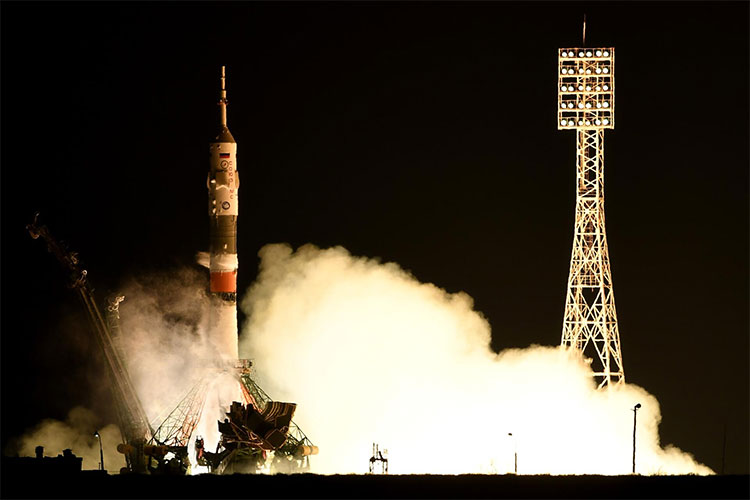Unmanned spacecraft carrying Russian humanoid robots responding defeat
The first unmanned spacecraft carrying Russia's humanoid robot landed a defeat on the International Space Station (ISS) on August 24.
Reuters said this was Moscow's latest step back in space science.
"Russian astronauts have ordered the cancellation of the Soyuz (Russian) spacecraft's automatic landing on the International Space Station," the US Aeronautics and Space Agency (NASA) said.
"The ship cannot cling to the key point on the space station" and "has backed off a safe distance from this trajectory complex, while Russian flight controllers intervene in the next steps" , NASA said.

The Soyuz MS-03 spacecraft is launched into space on 11/17/2016 - (Photo: AFP).
The Russian side informed the ISS team of the failed landing from the space station, not from the Soyuz spacecraft, according to NASA.
Reuters said the landing at Soyuz ISS was done at around 5.30 am on August 24, international time, or 12:30 pm on August 24, Vietnam time.
However, the live event on the Russian Space Agency website Roscosmos abruptly interrupted at the time Soyuz was about 100 meters away from ISS.
"The Soyuz vessel has entered the orbit safely above and behind the space station, which could help the ship approach the orbit again after 24 hours and 48 hours," NASA announced.
Meanwhile, TASS News quoted the Russian head at ISS, Vladimir Soloviov, saying there were problems with radio equipment on the space station.
Mr. Soloviov said these problems "can be fixed" , as well as the defective part of the device will be replaced. The Soyuz's next unmanned response attempt will be carried out on August 26.
- The first robot to fly into Russian space back to Earth
- Russia introduces the new generation humanoid robot SAR - 401
- Russian spacecraft caught fire when plunging to Earth
- Japanese humanoid robot sets a world record
- Russian spaceships can fall to the ground
- American missiles carrying spacecraft exploded after takeoff
- Japan launched unmanned spacecraft
- Russian cargo spacecraft exploded as soon as it left the launch pad
- The US developed the new generation XS-1 supersonic spacecraft
- This robot wants to 'borrow' your face for $ 130,000
- Russia will launch ships on Mars's satellites
- The process of spacecraft launching into orbit looks from space
 Van Allen's belt and evidence that the Apollo 11 mission to the Moon was myth
Van Allen's belt and evidence that the Apollo 11 mission to the Moon was myth The levels of civilization in the universe (Kardashev scale)
The levels of civilization in the universe (Kardashev scale) Today Mars, the sun and the Earth are aligned
Today Mars, the sun and the Earth are aligned The Amazon owner announced a secret plan to build a space base for thousands of people
The Amazon owner announced a secret plan to build a space base for thousands of people